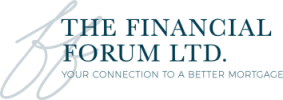How to Get the Best Mortgage Deals in Canada
Getting pre-approved financing is a necessity in acquiring a home in Canada due to upfront payments, particularly your down payment. The down payment depends on the purchase price of your home, while your mortgage loan can cover the rest of the amount.
Amortization and Payment Schedule
The longest amortization period, or length of time you need to complete the mortgage payment, is 25 years if your down payment is less than 20%. The minimum down payment for a home is five percent if its purchase price is $500,000 and below. Your monthly payments are lower if your amortization is long, but you’ll have to pay higher interest.
Canadian lenders normally have the following payment schedule options: weekly, semi-monthly (twice a month), or monthly.
Closed and Open Mortgages
You can choose between a closed or open mortgage when deciding on the type of mortgage that will suit your financial capability.
In a closed mortgage, the amount you must pay during your mortgage term is fixed. The mortgage term refers to the length of time that the interest rate and the options you chose are in effect. Closed mortgages usually have a lower interest rate.
There are penalty fees for making prepayments or beyond the minimum monthly payment. However, some lenders offer what they call a “prepayment privilege,” and the amount varies from lender to lender.
This mortgage type is best if you plan to keep your home for the duration of your loan term.
Meanwhile, an open mortgage allows you to make prepayments but it has higher interest rates. Open mortgages also permit you to fully pay off your mortgage. You can also renegotiate your mortgage or break your contract to change lenders before the end of your mortgage term.
An open mortgage is therefore advisable if you want to pay off your mortgage before the term ends. You can also go for this option if you have extra money to put toward your mortgage regularly.

Inquire About these Low Rates
You can contact The Financial Forum at 905-265-0246, or email us at mortgages@thefinancialforum.ca. You can also find a contact form, as well as a map to our office, on our contact page.
Types of Interest Rate
You pay for a lender’s service in the form of interest, which may either be a fixed or variable rate.
A fixed interest rate doesn’t change for the whole term of the mortgage. However, it’s generally higher than a variable interest rate. This type of interest rate will be a good choice if you want to pay the same amount throughout your term. Choose this option too if you foresee that market interest rates will rise during your mortgage term.
Meanwhile, a variable interest rate goes up and down, depending on what’s known as the prime rate. This refers to the annual interest rate that banks and financial institutions set. The Bank of Canada’s overnight rate influences these. Variable mortgages usually offer lower interest rates than fixed types.
Rate Hold
A rate hold is the length of time that a lender guarantees a loan’s interest rate while they process your loan. Your lender can guarantee the rate between 60 to 120 days after locking in the interest rate on your loan.
Understanding Mortgage Prepayments
You can prepay your mortgage in both open and closed mortgages, although there are certain conditions for the latter. Be sure to understand your prepayment privileges to avoid prepayment charges.





